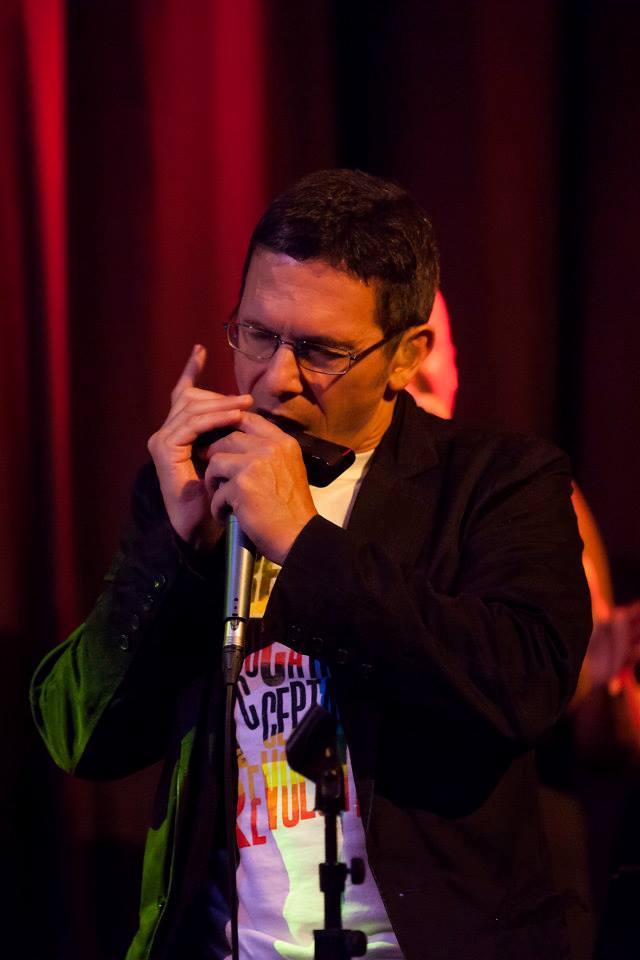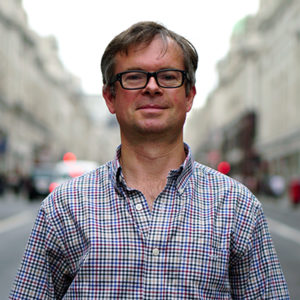Adam Glasser Interview

You grew up in South Africa. Tell us a bit about your childhood experiences with music and how you got into jazz.
“My father, the composer Stanley Glasser, worked a lot with South African jazz musicians in the late 50s and early 60s – he was musical director of the legendary musical King Kong. Hugh Masekela used to stay at our house sometimes when I was very young and I would hang around rehearsals hearing the sounds. My father wrote the music for Mr Paljas, a musical whose band that included some of the best jazz musicians of the day – Dudu Pukwana ( whom I subsequently played with in the mid 80s in London) and Chris MacGregor amongst others. As teenager in Johannesburg I would also hang out with the likes of Barney Rachabane and Mackay Davashe at Dorkay House, and heard many inspiring jazz gigs on the Wits University Campus.”
How come you’ve ended up in London?
“My father again! He was Head of Music at Goldsmiths College, and suggested I come and stay with him. I didn't go into music first but studied English at Warwick University where I was always active as an amateur jazz player. It wasn't until later that I took it seriously.”
You still go back to South Africa to tour. What’s the jazz scene like there?
“I go back as often as I can but its difficult to get regular work out there. My first major trip back as a musician was in 2006 to launch The Manhattan Brothers album I produced and recorded in London the previous year ( the legendary SA vocal group had come over with King Kong in the early 60s – they reformed in 1990 for the Wembley Concert celebrating Mandela's release and I became their pianist for 16 years). I have played most of the main festivals there Cape Town 2012, Johannesburg 2013 and Grahamstown 2014 as well as other gigs. My albums have done quite well critically ( Free at First won best Jazz Album at the SA Music Awards 2010) – the level and range of musicianship in south africa is truly astonishing. They have absorbed all the contemporary trends of jazz from hip hop to bebop as well as earlier genres .. as well as a range of very south african elements! The music there is truly rich and staggering .. but there is a lack of regular venues round the country though Johannesburg does have a wonderful club called The Orbit and Cape Town has perhaps the most organised jazz scene in terms of venues.”
You’re playing in Eastbourne next week. What can we expect to hear at your concert?
“A range of music that interests me! Jazz standards, South African jazz standards and original compositions from my two albums Free at First and Mzansi."
You’ve recorded two albums so far. Are you planning another in the future?
“Yes it's high time I recorded another album! My main aim for the next album is to take the chromatic harmonica to another level of improvisation… and to explore unusual material, maybe contribute a few originals. I will aim to make it appealing and different from the previous ones and reference of course my love of south african jazz along the way.”
As a teacher, what advice would you give to up and coming harmonica players?
“You have to distinguish between jazz and blues harmonica. Though some players mix them convincingly I do not have any real grasp of blues harmonica! But I can advise those wanting to follow the path of jazz harmonica to listen to other instruments that they like and recordings that touch them, musicians that touch them. I am not that interested in the harmonica as such – more trying to play music on it that has not been heard before on the harmonica. So I would advise harmonica players to get a grasp of the music they like and work backwards from there: learn the melodies and chord changes of pop or jazz songs they like, and also have a keyboard at hand to learn harmony, scales, chords etc – one tip: I regularly compose and record phrases that I like on my phone. And then try and assimilate them by ear. I feel it is important to build up a knowledge of scales and keys etc… as well as have a lot of fun learning melodies. The harmonica is so portable and relatively inexpensive that I recommend it to anyone that is tempted to explore music beyond just listening!”
This interview appeared in issue 32 of The Sussex Jazz Mag, available here.
Adam Glasser appears at The Birley Centre in Eastbourne on Tuesday 11th November.
For more on Adam Glasser go to www.adamglassermusic.com



